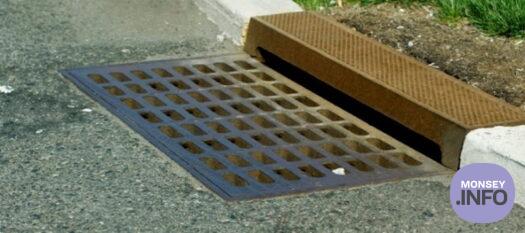
Health Department Announces Annual Mosquito Control Treatment of Catch Basins and Storm Drains
Rockland County Executive Ed Day informs residents that the Health Department will be treating catch basins and storm drains to prevent mosquitoes from breeding in standing water inside of these structures.
Please be patient if you see Health Department staff on the roads driving slowly in County vehicles doing these treatments. Also, try to avoid parking over storm drains while these employees are doing the treatment work so that they can access the catch basins more easily.
“Our annual mosquito control treatments to catch basins and storm drains help to control the mosquito population and protect ourselves and the community from vector-borne diseases,” said Amy Isenberg, Environmental Health Specialist, Mosquito Program Coordinator.
The best and most effective mosquito control begins in your yard. Eliminating standing water is the first step in reducing the mosquito threat. Residents can help by regularly checking their property for ANY items that can hold stagnant water, such as plant saucers, dog bowls, and birdbaths, and replace them with fresh water daily. Remove objects around your yard that collect water. Anything you choose to keep outside, such as kids’ toys, buckets, wading pools, canoes, and wheelbarrows, should be flipped over when not used to prevent them from collecting any water.
Mosquitoes lay their eggs in standing water. The eggs hatch into larvae that develop in the water for 7 to 10 days before emerging as adult mosquitoes that fly and bite. Since the West Nile virus outbreak in 1999, the Health Department has been collecting, identifying, and tracking mosquitoes in their adult and larval stages and educating the public to reduce the mosquito population.
The Mosquito Control Program focuses on reducing Rockland’s mosquito population at the larval stage during the spring and summer months by identifying and monitoring a variety of mosquito-breeding sites, including roadside catch basins. Program staff also conduct routine and complaint-based inspections at many commercial properties that are considered “high risk” for mosquito breeding, including tire-storage facilities, landscape yards, municipal storage yards, outdoor swimming pool facilities, horse farms, marinas, and garden centers, as well as respond to complaints against private residential properties.
“Mosquitoes are more than just a nuisance; they also spread dangerous diseases, including West Nile virus and Eastern Equine Encephalitis (EEE). We ask that families do their part by eliminating any standing water on their property where mosquitos could breed,” said County Executive Day.
For more information, call the Health Department at 845-364-3173 or visit http://bit.ly/RCDOH_mosquito. To learn more about the West Nile Virus and EEE, visit the New York State Department of Health (NYSDOH) webpages at http://bit.ly/ny_west_nile_virus and http://bit.ly/ny_EEE.









